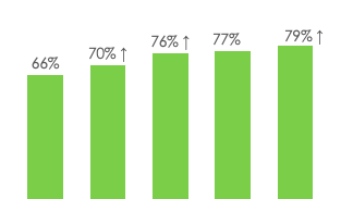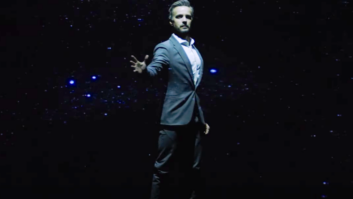Last week, the Consumer Electronics Association sponsored a one-day seminar in Washington, D.C., called “Digital Download: Public Access to Content in a Digital World.” (See story, p. 1.) As part of the drumbeat for the seminar, CEA issued in February a survey of more than 1,800 people that revealed two interesting results the entertainment industry should consider:
89 percent of Internet users download multimedia content and information.
61 percent oppose laws that prevent the usage of file-sharing software such as Napster.
In releasing the report CEA president Gary Shapiro said, “We must protect the ability of technologies to evolve, especially those that allow personal, non-commercial recording. These new technologies vastly expand our collective knowledge base and ultimately benefit those most concerned-copyright owners.”
We couldn’t agree more. The entertainment industry, if it completely gets its way, will charge everyone every time you access one of its products. The public won’t stand for it. Remember Divx? You had to buy the disk to watch a movie twice and then had to pay over and over again when you wanted to watch it later. That format certainly broadened the entertainment industry’s profits, didn’t it?
With Napster losing its case against the recording industry quickly and dramatically, the Divx strategy still hasn’t died. Prior to the case’s settlement, our staff talked with several industry executives who theorized that if Napster won even a partial victory the music industry would move quickly to DVD-Audio for all new releases. Why? Well, as part of the spec there is copy protection that could allow a choice of the following: unlimited DVD-Audio copies from the original disc; one or a limited amount of DVD-Audio copies; two-channel CD copies; MP3- or FM-radio-quality copies; or zippo. Nada. Nothing. (Gee, unfettered by law, which selection would record companies prefer?) Even with the Napster win in its back pocket, the recording industry may just follow that strategy anyway.
The “collective knowledge base” Shapiro talks about would shrink drastically.as would sales of other home audio and portable audio products. Yeah, it probably won’t happen, but the technology is out there, and the will in the entertainment business is out there that it COULD happen.
This paper, and others, have called the past few years the “digital revolution” for all the new digital products that have been developed. But the truth is that due to the foot-dragging the entertainment industry, broadcast and cable TV moguls have wrought during this time, full-blown HDTV is years away. These same forces are also trying to curb any digital home recording of copyrighted music and video. Thanks to the entertainment industry, this “revolution” is taking longer to evolve than the Hundred Years war. (By the way, if broadcast TV networks are so worried about audience slippage, don’t you think that full HDTV with datacasting for many shows would draw more viewers than claptrap like Survivor, Temptation Island and the XFL?)
Now, this is a serious issue, one that should be vigorously monitored by the public and the consumer electronics industry. But I have a transcript of a monologue by comedian/ Monday Night Football gadfly Dennis Miller from his HBO show, and I pass along his rant, one because it is dead-on funny, and two, because I feel Miller echoes the feelings of many consumers:
“Pop music has a rich legacy of ripping people off. First, the white musicians stole from the blacks. Then, the producers stole from the performers. Then, the performers and the producers formed an alliance to steal from us by charging $19 for a CD with only one halfway decent song on it. So I for one salute Napster because it’s high time the public had the opportunity to horn in on a piece of the action. Considering how badly you get ****** every time you go into a record store, I have to assume that Richard Branson was trying to be ironic when he named the place Virgin.
“Now, industry people will tell you that Napster is unfair, denies musicians of their rightful, hard-earned cash. Hey, the bottom line on Napster is, it means no more paying for overpriced CDs and putting money into the pockets of the bloated, corrupt media conglomerates. All you need is a high-speed modem, extra memory, a CD-ROM attachment, an extra phone line, Internet access, a CD burner, blank CDs, a how-to manual and NO ******* LIFE.”













